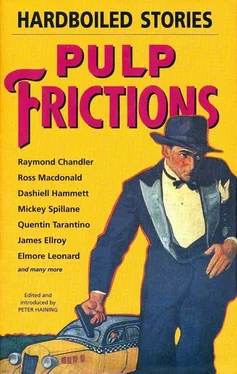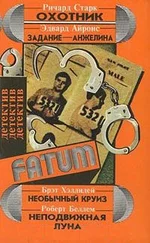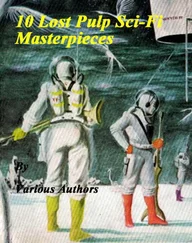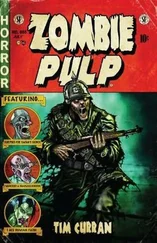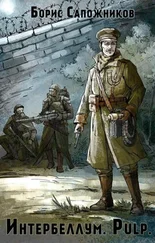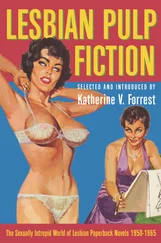‘Going to run some more circles — come on, Mac!’
McClump and I held a conference on the fly, and then I got a car from the nearest garage and headed for Tavender. We made time going out, and got there before the general store had closed for the night. The stuttering Philo separated himself from the two men with whom he had been talking, and followed me to the rear of the store.
‘Do you keep an itemised list of the laundry you handle?’
‘N-n-no; just the amounts.’
‘Let’s look at Thornburgh’s.’
He produced a begrimed and rumpled account book, and we picked out the weekly items I wanted: $2.60, $3.10, $2.25, and so on.
‘Got the last batch of laundry here?’
‘Y-yes,’ he said. ‘It j-just c-c-came out from the city t-today.’
I tore open the bundle — some sheets, pillowcases, tablecloths, towels, napkins; some feminine clothing; some shirts, collars, underwear, and socks that were unmistakably Coons’s. I thanked Philo while running back to the car.
Back in Sacramento again, McClump was waiting for me at the garage where I had hired the car.
‘Registered at the hotel on June fifteenth, rented the office on the sixteenth. I think he’s in the hotel now,’ he greeted me.
We hurried around the block to the Garden Hotel.
‘Mr Henderson went out a minute or two ago,’ the night clerk told us. ‘He seemed to be in a hurry.’
‘Know where he keeps his car?’
‘In the hotel garage around the corner.’
We were within ten feet of the garage, when Henderson’s automobile shot out and turned up the street.
‘Oh, Mr Henderson!’ I cried, trying to keep my voice level.
He stepped on the gas and streaked away from us.
‘Want him?’ McClump asked; and at my nod he stopped a passing roadster by the simple expedient of stepping in front of it.
We climbed in, McClump flashed his star at the bewildered driver, and pointed out Henderson’s dwindling tail-light. After he had persuaded himself that he wasn’t being boarded by a couple of bandits, the commandeered driver did his best, and we picked up Henderson’s tail-light after two or three turnings, and closed in on him — though his car was going at a good clip.
By the time we reached the outskirts of the city, we had crawled up to within safe shooting distance, and I sent a bullet over the fleeing man’s head. Thus encouraged, he managed to get a little more speed out of his car; but we were definitely overhauling him now.
Just at the wrong minute Henderson decided to look over his shoulder at us — an unevenness in the road twisted his wheels — his machine swayed — skidded — went over on its side. Almost immediately, from the heart of the tangle, came a flash and a bullet moaned past my ear. Another. And then, while I was still hunting for something to shoot at in the pile of junk we were drawing down upon, McClump’s ancient and battered revolver roared in my other ear.
Henderson was dead when we got to him — McClump’s bullet had taken him over one eye.
McClump said over the body:
‘I ain’t an inquisitive sort of fellow, but I hope you don’t mind telling me why I shot this lad.’
‘Because he was — Thornburgh .’
He didn’t say anything for about five minutes. Then: ‘I reckon that’s right. How’d you know it?’
We were sitting beside the wreckage now, waiting for the police that we had sent our commandeered chauffeur to phone for.
‘He had to be,’ I said, ‘when you think it all over. Funny we didn’t hit on it before! All that stuff we were told about Thornburgh had a fishy sound. Whiskers and an unknown profession, immaculate and working on a mysterious invention, very secretive and born in San Francisco — where the fire wiped out all the old records — just the sort of fake that could be cooked up easily.
‘Now, consider Henderson. You had told me he came to Sacramento sometime early this summer — and the dates you got tonight show that he didn’t come until after Thornburgh had bought his house. All right! Now compare Henderson with the descriptions we got of Thornburgh.
‘Both are about the same size and age, and with the same colour hair. The differences are all things that can be manufactured — clothes, a little sunburn, and a month’s growth of beard, along with a little acting, would do the trick. Tonight I went out to Tavender and took a look at the last batch of laundry — and there wasn’t any that didn’t fit the Coonses! And none of the bills all the way back were large enough for Thornburgh to have been as careful about his clothes as we were told he was.’
‘It must be great to be a detective!’ McClump grinned as the police ambulance came up and began disgorging policemen. ‘I reckon somebody must have tipped Henderson off that I was asking about him this evening.’ And then, regretfully: ‘So we ain’t going to hang them folks for murder after all.’
‘No, but we oughtn’t have any trouble convicting them of arson plus conspiracy to defraud, and anything else that the Prosecuting Attorney can think up.’
The Man Who Liked Dogs
Raymond Chandler
Among the many authors inspired by Dashiell Hammett to write for the pulps was Raymond Chandler, creator of another of the best-known ‘hardboiled dicks’, Philip Marlowe. Like his predecessors, Marlowe, who was in his forties and described as tall, with grey eyes and ‘a jaw of stone’, was tough, laconic and wisecracking — but also highly intelligent (he had been college educated), introspective and a fearless judge of character. Although he solved the cases brought to him by (mostly) wealthy and (occasionally) corrupt clients, he was invariably short of cash. Marlowe operated his one-man business in Los Angeles, a city famed for its beauty but also its squalor, where he lived in a run-down apartment and worked out of an equally shabby office. He was a man driven by a sense of justice and co-operated with the police as long as the officers were not corrupt. For such men, Marlowe had nothing but contempt. Of his private eye, Chandler wrote, ‘To me [he] is the American mind; a heavy portion of rugged realism, a dash of good hard vulgarity, a strong overtone of strident wit, an equally strong undertone of pure sentimentalism, an ocean of slang, and an utterly unexpected range of sensitivity.’
Philip Marlowe did not, however, spring fully formed into his creator’s mind. When Chandler first began writing hardboiled yarns in 1933, his sleuths bore a variety of different names — such as John Dahlias (who featured in ‘Mandarin’s Jade’ and ‘Smart-Aleck Kill’) — or were tersely referred to as Carmody, Malvern and Mallory. Some, in the tradition of his mentor’s Continental Op, were nameless, merely pushing a business card into the face or hand of a potential client without so much as a word. However, after the acclaimed debut of Philip Marlowe in the novel The Big Sleep (1939), Chandler cannibalised some of his earlier stories for subsequent books, or republished the stories with the detective renamed Marlowe. Thanks to the huge success of the novels that followed, including Farewell, My Lovely (1940), The Lady in the Lake (1943) and The Long Goodbye (1953), as well as the numerous movies starring Dick Powell, Humphrey Bogart, Robert Mitchum and so on, Chandler’s creation has deservedly come to be regarded as the epitome of the private eye in detective fiction.
Raymond Chandler (1888–1959) was born in Chicago but educated in England, and worked as a journalist for several English magazines before returning to America. After being employed for a time as the Daily Express correspondent in Los Angeles and then as an oil executive, he fell on hard times during the Depression and took up writing for the pulps. Fame did not come until the publication of The Big Sleep, but following this he was lured into screen-writing in Hollywood where he worked on a number of very successful movies; these included Double Indemnity (1944), for which he received an Oscar nomination. The illness of his wife caused Chandler to neglect his work in order to care for her, and after her death in 1954 he began drinking heavily and ruined his own health. His fame has, however, grown increasingly since his death and many critics consider his books works of literature rather than just crime fiction. ‘The Man Who Liked Dogs’ is one of his early stories, written for Black Mask in 1936, and features a nameless sleuth who is clearly a prototype of Marlowe. The story is also of particular interest because it was later altered, expanded and mixed with other elements to form the nucleus of perhaps the most famous of all the novels about the Californian private eye, Farewell, My Lovely.
Читать дальше
